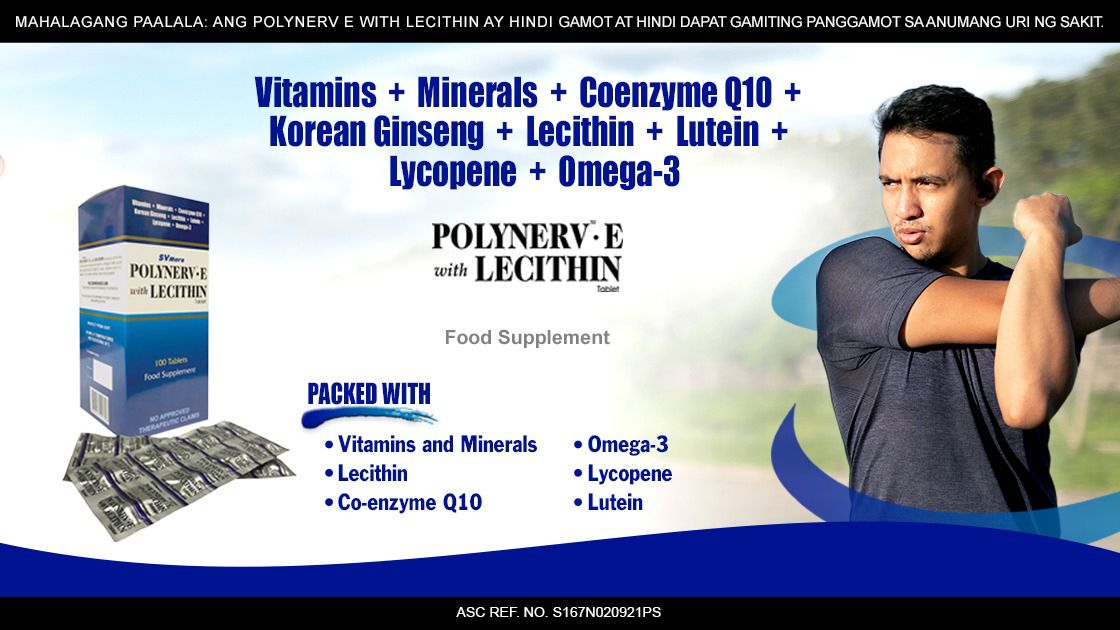Choosing the Right Nutrients for your Heart Health
When choosing your brand of nutritional supplement, it is good to know which part of your health or body you want to focus on. If you want to show your heart some love, here are some HEART NUTRIENTS to look for in choosing your supplement:
Vitamin E
Vitamin E has been shown to reduce blood viscosity and prevent fatty acid oxidation. This helps prevent cholesterol plaque formation in the blood vessels that can potentially block arteries in the heart, which may later lead to a heart attack. Studies show that consuming Vitamin E-rich food is associated with lower risk for coronary heart disease in middle-aged to older men and women.
Omega-3 Fatty Acids
Don’t let the “fat” in “fatty acid” mislead you. Omega-3 Fatty Acids are good for your heart health. Also known as fish oil or EPA and DHA, these are your healthy fatty acids found in fish. If you look at some of the experts’ recommendations for cardiovascular health, you may see omega-3 fatty acids as part of the treatment in lowering bad cholesterol. A daily dose of omega-3 fatty acids can help prevent cholesterol build-up thereby decreasing the risk of heart attacks especially for the elderly population.
Co-Q10 or Coenzyme-Q10
Co-Q10, both an antioxidant and anti-inflammatory nutrient, has been studied for its use on coronary heart disease. Some researchers reported that daily supplementation with Co-Q10 helped in lowering elevated blood pressure. Recent findings have shown that Co-Q10 helps improve the performance or functional capacity of the heart.
Lecithin
Some supplements provide Lecithin because of its cholesterol-busting properties. Also known as phosphatidylcholine, lecithin is reported to support liver health. It plays an important role in metabolizing cholesterol, thus helping against cholesterol build-up and plaque formation that could lead to coronary artery disease.
Folate
Vitamin B9 or Folate is not only for expectant mothers, but also for those who want to reduce their risk for heart disease. Folate helps lower homocysteine, an important risk factor in artery wall thickening. Hence, adequate folate intake may help prevent homocysteine accumulation in the blood, and lowers your risk for stroke and coronary heart disease. If you want the benefits of folate, don’t forget to spot “Folic Acid” in your supplement’s list of ingredients.
Magnesium
Considered as a trace mineral, magnesium is shown to be important in keeping a healthy heart rhythm. Some studies have reported that low magnesium level has been linked to several risk factors that could lead to heart disease such as high blood pressure, increase in cholesterol build-up and hardening of the arteries.
Vitamin C
Vitamin C is a well-known potent antioxidant and great for your immune system. But do you know that Vitamin C is also good for your heart? Researchers found out that intake of Vitamin C is linked to a reduced risk for heart disease because of its ability to help lower heart disease risk factors, including high blood levels triglycerides and LDL, known as the bad cholesterol.
Lycopene, Lutein and Zeaxanthin
Lycopene is a potent antioxidant that provides the red color in your fresh tomatoes. Lycopene provides protection for the heart by lowering blood cholesterol levels and blood pressure which are both risk factors for coronary heart disease.
Some emerging studies suggest the potential roles of lutein and zeaxanthin in supporting cardiovascular health. Lutein has been shown to have a number of beneficial effects on the heart by decreasing inflammation. It was said to resolve chronic inflammation in coronary arteries of patients. Results of studies also suggested that lutein may help prevent clogging of the neck arteries. Zeaxanthin reduces blood vessel stiffness and protects the blood vessels against atherosclerosis.
It must be remembered though that these nutrients may only help lower the risk for heart disease and must be combined with other healthy lifestyle practices such as proper diet and exercise.
If you have existing heart problems or symptoms, it would be best to consult your doctor on the proper supplements that you should take. Listen to your doctor’s advice and take the right nutrients for your heart.


